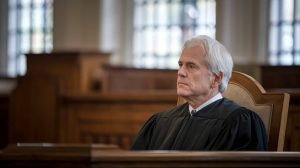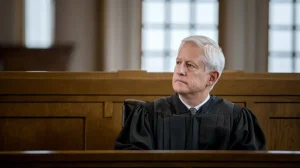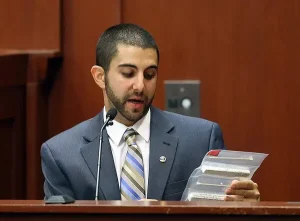Waiver of Counsel: Legal Framework and Standard of Review
Criminal defendants have a fundamental right to the assistance of counsel under the Sixth Amendment to the U.S. Constitution and Article I of the North Carolina Constitution. A defendant also has the right to proceed without counsel and represent himself or herself, but such waiver of counsel must be made knowingly, intelligently, and voluntarily. North Carolina law requires trial courts to conduct a thorough inquiry before accepting a waiver of the right to counsel.
This inquiry is codified in N.C.G.S. § 15A-1242, which provides that a judge may allow a defendant to proceed pro se only after confirming that the defendant:
 Carolina Criminal Defense & DUI Lawyer Updates
Carolina Criminal Defense & DUI Lawyer Updates evidence was sufficient to prove the defendant’s constructive possession of stolen property; and (2) whether the trial court erred by excluding as hearsay certain testimony during cross-examination.
evidence was sufficient to prove the defendant’s constructive possession of stolen property; and (2) whether the trial court erred by excluding as hearsay certain testimony during cross-examination. hemp consistent with N.C.G.S. 90-87, NC PJI 260.10, NC PJI 260-15, NC PJI 260.17 et al, and North Carolina v. Ruffin. To that end, it’s helpful to provide
hemp consistent with N.C.G.S. 90-87, NC PJI 260.10, NC PJI 260-15, NC PJI 260.17 et al, and North Carolina v. Ruffin. To that end, it’s helpful to provide threshold. Specifically,
threshold. Specifically,  involved exceeds North Carolina’s legal THC limit of 0.3%, thereby making it illegal marijuana and not lawful hemp.
involved exceeds North Carolina’s legal THC limit of 0.3%, thereby making it illegal marijuana and not lawful hemp. tests, and standardized field sobriety tests.
tests, and standardized field sobriety tests. and medical conditions that could affect impairment assessments. This article examines the different types of experts used in North Carolina DWI cases, how courts determine whether their testimony is admissible under Rule 702, and what legal considerations apply when presenting expert evidence in court.
and medical conditions that could affect impairment assessments. This article examines the different types of experts used in North Carolina DWI cases, how courts determine whether their testimony is admissible under Rule 702, and what legal considerations apply when presenting expert evidence in court. technical procedures—such as chemical breath tests, blood alcohol analyses, and field sobriety testing—that lay jurors or even judges may not fully understand. An expert witness, properly qualified and admitted, can provide insight into such complex matters both for the prosecution and the defense.
technical procedures—such as chemical breath tests, blood alcohol analyses, and field sobriety testing—that lay jurors or even judges may not fully understand. An expert witness, properly qualified and admitted, can provide insight into such complex matters both for the prosecution and the defense. (SFSTs) to gauge whether enough evidence exists for an arrest or further chemical testing. Roadside dexterity tests—commonly the Horizontal Gaze Nystagmus (HGN) test, the Walk-and-Turn test, and the One-Leg Stand test—remain a subject of debate. Questions arise about whether these tests are truly “standardized,” whether they reliably they measure impairment or are overly subjective, and how courts treat SFSTs as evidence.
(SFSTs) to gauge whether enough evidence exists for an arrest or further chemical testing. Roadside dexterity tests—commonly the Horizontal Gaze Nystagmus (HGN) test, the Walk-and-Turn test, and the One-Leg Stand test—remain a subject of debate. Questions arise about whether these tests are truly “standardized,” whether they reliably they measure impairment or are overly subjective, and how courts treat SFSTs as evidence.